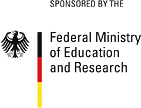Territorial and Functional Dimensions of Politics – The Regulation of Pesticides in Argentina
The PhD project aims to examine the interaction between the political process and institutions, particularly when multiple policy fields and varying configurations of state levels are involved. The approach addresses the connection between territorial and functional dimensions of political organization and of political processes to shed new light on the imposition of interests in the political process with respect to formal norms and informal power relations. I analyze pesticide regulation in Argentina, in which interconnected shifts in state levels and policy fields have occurred in the past decade. It was the first Latin American country to adopt a policy of rapid expansion of transgenic soy cultivation as central to not only its agricultural policy but also its export strategy with tremendous consequences for human health and the environment as well as the social structure of soy-producing regions. In some aspects of its pesticide regulation, Argentina has a pioneering role and can be a model for other states, although there are significant problems in implementation related to its particular federal structure. Using primary sources, I use Qualitative Content Analysis (Mayring 2010) to elaborate the complex and changing relationships between regulations, state levels, and policy fields, in which informal power relations play a significant role.
